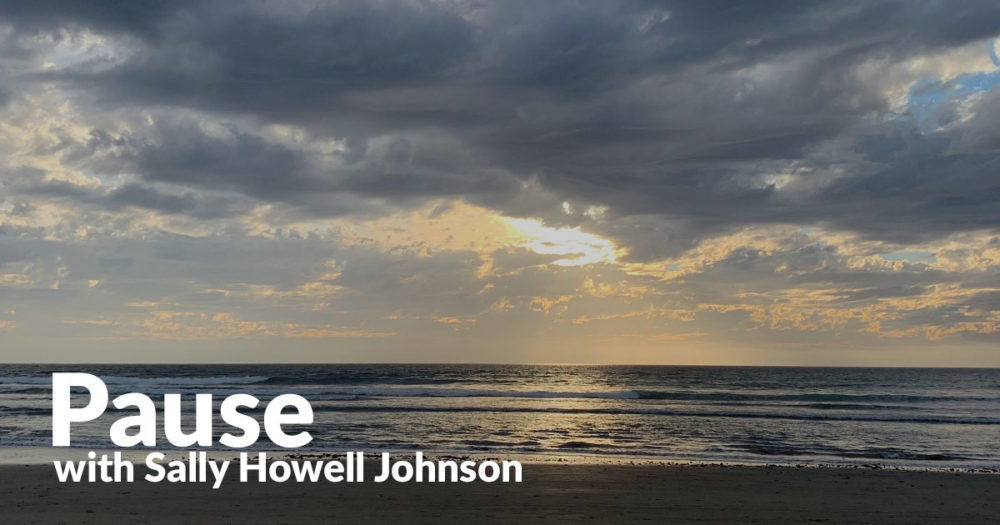The art and words of artist Jan Richardson have been an inspiration to me for years. I can’t remember when I first learned of her work but I heard her speak years ago and have been taken by her gentle way of embracing the presence of the Divine in her life and then offering that to others through collage, painting and poetry. This Lent I am once again participating in an online retreat that she hosts. Five mornings a week a painting, a reflection and a poem usually in the form of a blessing arrives in my email inbox. This gift shows up sometime in the wee hours of the morning and it is the first contact with words I have in the day.
This second week of Lent she is focusing on the word ‘memory.’ She points out the number of times the scriptures use the word ‘remembrance’ and most of those places are very significant in the shaping of the stories that hold the Christian and Jewish households. Remembrance is how we tell our own stories, the ones that gave birth to us, that help us hold onto the wisdom we learned from mistakes and missteps, those experiences that filled us with deep joy and awe that sometimes connected us with Mystery. We remember so we can pass on to friends, family, another generation, what it was like to be ‘us’ in the span of years with which we have been blessed.
Of course, memory is a tricky thing. Anyone who is a sibling and begins to tell a story of something that happened, something seemingly significant or trivial, at a family gathering often hears a brother or sister recount the story in a very different manner. What is remembered from the original experience is different depending on the person. The lens we use is uniquely ours and how we experience and then remember is also. It is an important lesson to learn in any setting. It can keep us humble.
There are memories that we cherish. The birth of a child. The first time we laid eyes on a beloved. A special trip to someplace we had always longed to go. A meal so delicious that even in the memory it is nearly possible to taste it again. Sites of beauty and awe. An encounter with a creature that filled us with deep knowing we are a part of something immense.
There are also memories we would just as soon forget. The death of a loved one. A diagnosis that shattered us. An accident that changed everything. The loss of a job, a hope, a dream. Harms that we met and hurts whose wounds we still wear. These are memories we often wish there was a delete button for.
How we cherish our memories is up to us. And how we allow them to be remembrances that are healthy and helpful in living this day and into the future can make all the difference. There are people I know whose attachment to memory is so strong that it is difficult to move into the future. This is also true with communities. Sometimes the memory of what has been will not let the possibility of what might be evolve. Memory can become a prison or a bridge or what helps us take flight.
Most children I know love to hear the story of how they were born. I remember sitting with our sons flipping through their ‘baby book’ looking at the pictures of their early days. This looking was usually accompanied by telling once again how the day of their birth played out, who came to visit, what sounds they made, how their name was chosen. It seemed to be a kind of anchor in remembering who they were as they were living into they would become. Each of us have a similar anchoring moment or moments. What are yours? What are the memories that ground you and remind you of what is most important in your life? What lens do you wear when you remember?
The season of Lent is grounded in memory. We are telling an ancient story and mining its words for what it brings to us this go round the Sun. The story is remembered by each of us in different ways as all stories are. It is up to each of us how we re-member. May there be gentleness and grace in all our memories and may they help us be present to the wisdom of what has gone before.

